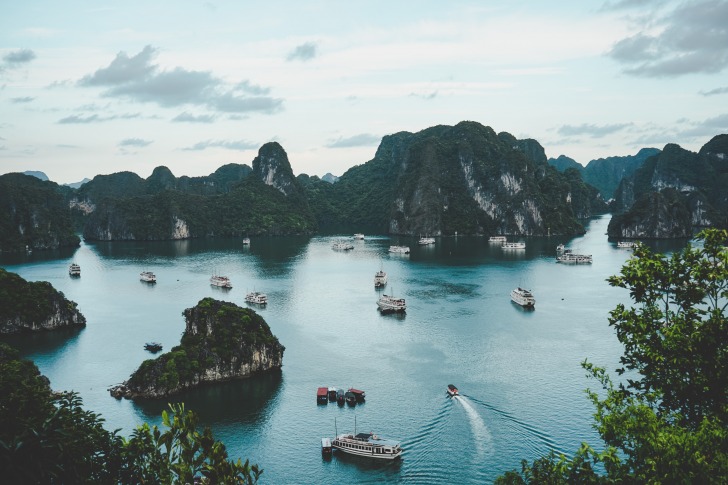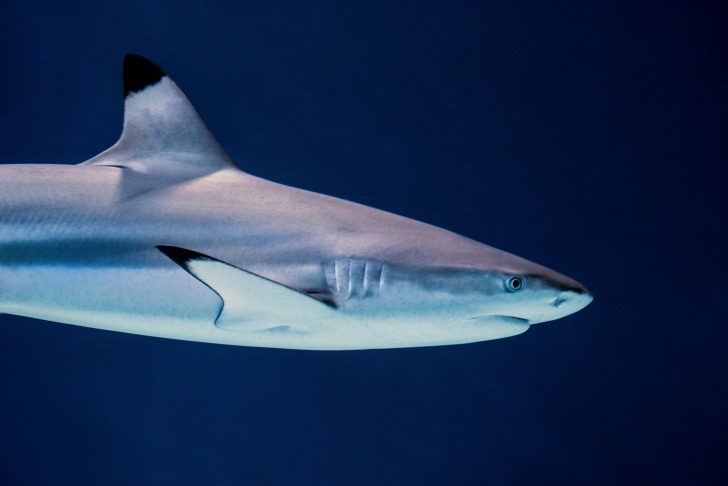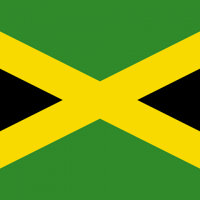Vietnam is a country situated in Southeast Asia.
It is widely known for its mesmerizing beaches, rivers, delicious food, bustling cities, unique culture, and Buddhist pagodas.
The country attracts millions of tourists each year.
Many, if not all of them, flock to the picturesque beaches to soak up the sun and enjoy swimming in the clear waters.
The ocean off the coast of Vietnam is home to a rich variety of aquatic life.
Some of these sea creatures are beautiful and harmless, but some of them are more dangerous and pose a risk to the safety of humans.
Contents
So… Are There Sharks in Vietnam?
Yes, there are sharks in the waters around Vietnam.
However, many of these sharks are not known to attack humans and generally keep their distance.
Of the various species of sharks swimming in the waters in Vietnam, only a few pose a real threat to humans.
Vietnam has a warm climate year-round.
The country of Vietnam is washed by three seas.
On one coast, Vietnam is washed by the Gulf of Thailand in the southwest, and on the other coast, it is washed by the Gulf of Tonkin in the northeast.
The South China Sea washes over the largest part of the coastline.
The majority of the country has a tropical monsoon climate.
It is more subtropical in the north and more subequatorial in the south.
The water is warm and pleasant year-round.
The water temperature in Vietnam, along the coastal area of the country, ranges between 79°F and 85°F, with each beach differing by a few degrees Fahrenheit.
These are all factors that help to determine the presence of sharks.
Typically, sharks prefer warmer waters.
You only need to study their presence across the world to find that they are usually in coastal regions where the water is comfortable at 72°F.
That’s because sharks are cold-blooded creatures that need outside sources to regulate their body temperature, such as the temperature of the water.
It’s easy to understand then, that sharks would naturally move towards places like Vietnam, where the water temperature is warmer, year-round.
In addition to this, there is an abundance of food supply here for the sharks to feed on.

The research was conducted from 2000 to 2005 in Vietnam to determine the various shark species in the coastal regions of this country.
During this period, it was determined that there were a total of 38 species of sharks that belonged to 23 different genera and 12 families.
Some of the shark species found in Vietnam are completely harmless, like the whale shark (Rhincodon typus).
These sharks are fondly known as gentle giants as they pose no threat to humans and can be found in the waters near Nha Trang, Vietnam.
They aren’t often seen in the wild by divers.
However, they do travel during spring to the bay areas of the country, in search of food, such as krill and plankton.
These sharks can grow to 40 feet in length and can weigh up to 20 tons.
The white-spotted bamboo shark (Chiloscyllium plagiosum) is another harmless shark species, commonly found in Vietnam.
These docile sharks are typically found in the coral reefs of the Pacific Ocean, and on the coast of Vietnam.
They feed off invertebrates and other small fish.
The coral catshark (Atelomycterus marmoratus) is a very small species of shark that swims in the coral reefs of Vietnam.
These sharks are nocturnal.
They can grow to two feet in length and their diet consists of invertebrates and small fish.
Due to overfishing and the destruction of coral reefs, these sharks are listed by the IUCN Red List of Threatened Species as vulnerable.
Some of the more dangerous shark species in the area, and those responsible for the sharp increase in shark bites, back in 2010, include the blacktip shark (Carcharhinus limbatus).
These sharks are identified by their black-tipped fins.
They hunt schools of fish.
There have been cases of attacks on humans but these are cases of mistaken identity as these sharks do not generally attack humans.
According to The International Shark Attack File (ISAF), these sharks account for a total of 29 attacks on humans globally. Of these attacks, only one was fatal.
The Queensland shark (Carcharhinus amblyrhynchoides) is a medium-sized shark.
These sharks are known to attack humans and are considered to be dangerous.
They are also listed as vulnerable.
They feed on bony fish and small crustaceans.
Other dangerous species of shark that have been spotted in the area include the bull shark (Carcharhinus leucas), the bigeye shark (Carcharhinus amboinensis), and the great white shark (Carcharodon carcharias).
Though the latter may have only been spotted a few times.
Is it Safe to Swim in Vietnam?
It is generally safe to swim in the water in Vietnam.
When it comes to shark attacks, there have only been a few shark attacks over the last century.
Swimmers are advised to practice caution when going into the water in Vietnam.
Apart from certain dangerous shark species, there are also a few species of jellyfish that may leave swimmers with a bad sting.
Factory spills could pose a health risk, but the authorities are expected to warn visitors of any health hazards in the water in Vietnam due to pollution.
In addition, rip currents pose a serious threat to central Vietnam’s beaches.
Swimmers are required to educate themselves on identifying and being safe in a rip current.
Interesting Shark Facts in Vietnam
One of the largest and most docile species of shark roams the waters of Vietnam.
These sharks prey on small fish and plankton and are known as whale sharks.
They are slow-moving sharks, filter-feeding sharks.
And, despite their size and name, they are in fact not whales, but sharks.
They are the world’s largest fish.
They have very tiny teeth that only allow them to eat small fish and plankton.
They can neither bite nor chew.
Whale sharks can process up to 6,000 liters of water through their gills every hour.
Some are known to live up to 150 years.
The white spotted bamboo shark is used in Chinese medicine.
They are caught and marketed for human consumption.
You’ll find these sharks in subtropical and tropical reef waters, inshore.
They are harmless to humans and feed off marine fishes and invertebrates.
Bull sharks and great white sharks are considered to be two of the three most deadly sharks to swim in the oceans, accounting for the majority of shark attacks and fatal shark attacks worldwide.
While most sharks can only live in saltwater, bull sharks have adapted to swimming in fresh and saltwater.
You’ll often find them upstream in fresh or brackish water rivers.
Unlike most sharks that lay eggs, the bull shark is viviparous.
They give birth to live young.
Most sharks live in the ocean, Sharks must retain salt in their bodies, which they get from the salty ocean water.
Without the salt in their bodies, their cells may rupture, they will start to bloat, and eventually die.
Sharks do not have a swim bladder.
This is a gas-filled organ that helps the shark to float in the water.
Instead, sharks have large oil-filled livers which give the sharks some buoyancy in the water.
Without it, the sharks would not be able to float.
Research suggests that sharks are much less buoyant in freshwater as there is not enough salt in the water.
However, there are some sharks that have adapted to freshwater.
These sharks have much larger oil-filled livers that help them maintain buoyancy in freshwater.
One example of a shark that is able to swim in both fresh and saltwater is the bull shark.
There are other species of shark such as the Ganges shark, which only lives in fresh water and never travels into saltwater.

3 Safety Tips for Swiming in Shark-infested Waters
- Avoid shark-infested waters. Whenever possible, do not swim in waters known to host sharks. While this is not always possible, it’s best to always do your research before going into any body of water. There is a plethora of information on the internet which could tell you if an area is known for any shark activity or shark bites.
- Try not to splash too much. There are multiple cases of shark bites due to mistaken identity. When swimming in the water, people tend to splash around. Sharks may mistake this for prey, as similar behavior is usually exhibited by their prey. This isn’t always possible as the whole point of swimming is to have fun. However, if you happen to find yourself in water known to host sharks, try not to splash as much.
- Don’t wear shiny jewelry when going for a swim. Sharks may mistake the jewelry for the scales of prey and attack. These unprovoked attacks are not uncommon.
Summary
Vietnam has some of the most breathtaking beaches in eastern Asia.
The country is well known for its cuisine, beautiful beaches, inviting culture, and friendly people.
Visitors are advised to practice caution when going to the beaches.
Vietnam is a relatively safe country with a low crime rate.
There hasn’t been a recorded fatal shark attack in the country but there have been a few shark bites.
In addition, to sharks, there is also the threat of pollution in the water, strong rip currents, jellyfish, and other dangers to keep an eye out for.
There are some natural disasters that may be something to keep in mind, such as rare earthquakes and typhoons, as some areas in the country are devastated each year by heavy floods, typhoons, and heavy storms.
Vietnam Safety Overview
READ THE FULL REPORT: Vietnam Safety Review
Safety Index:
- OVERALL RISK: LOW
- TRANSPORT & TAXIS RISK: MEDIUM
- PICKPOCKETS RISK: MEDIUM
- NATURAL DISASTERS RISK: MEDIUM
- MUGGING RISK: LOW
- TERRORISM RISK: LOW
- SCAMS RISK: MEDIUM
- WOMEN TRAVELERS RISK: MEDIUM
Frequently Asked Questions
Are there sharks in Ha Long Bay?
Ha Long Bay is located in the northeast of Vietnam.
More specifically, in Quang Ninh Province on the Gulf of Tonkin.
It is approximately 165 km away from the capital city of Ha Noi.
This is a UNESCO World Heritage site.
There are no sharks here.
Swimming should be safe, apart from other dangers such as rip currents and jellyfish.
How many shark attacks a year are there in Vietnam?
Since 1907, there have only been 12 recorded shark attacks in Vietnam.
None of these attacks were fatal.
However, in 2010, there was a major spike in shark bites in the coastal city of Ha Long with a recorded 79 shark bites occurring in this area alone.
Have there been any fatal shark attacks in Vietnam?
On record, and according to what scientists are aware of, there have never been any fatal shark attacks in Vietnam.
However, in 2010, there was a sharp increase in shark bites on the off-the-beaten-path beach of Quy Nhon Bay.
It was noted that a lobster farm had recently been opened in the area and researchers believed that this may have been the cause of the increased shark bites.












Vietnam has beautiful beaches and a rich variety of aquatic life, including sharks, but most species are not known to attack humans.